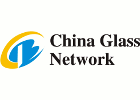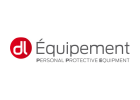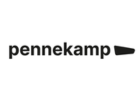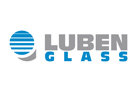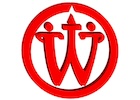Efforts are ramping up around the world to achieve climate neutrality as quickly as possible. France has adopted a pioneering role and is tightening up regulations for new buildings. “It is only a matter of time until window manufacturers and window makers will have to engage more with life cycle assessments, including in the DACH region,” says Mario Kindler, product manager at SWISSPACER, with confidence. This will require the right database. The Swiss company recently published Environmental Product Declarations (EPDs) for its spacer bars and the Georgian bar. These supply reliable data on the environmental properties of a product over its entire life cycle.
France is making changes right now: The thermal protection regulation RE2020 for new buildings, which came into force at the beginning of 2022, presents the construction industry with demanding challenges: By 2030 it envisages a reduction in total CO2 emissions of 40 percent compared to 1990 levels – and climate neutrality for new buildings should be achieved by 2050. It is no longer only about thermal performance, but about the analysis of the entire building life cycle. Building cladding, flooring, windows – all installed parts of a building have a considerable impact on the environment. Be it in terms of energy during manufacturing, the CO2 emissions or the waste produced.
The regulation is based on the national label for sustainable building E+C-. Apart from achieving a positive energy balance for the building, it also aims at low CO2 emissions over the entire life cycle. The regulations define maximum limits for CO2 emissions and energy needs, as well as minimum requirements for living comfort. Construction materials with a low CO2 balance and better insulating properties should consequently have far better market opportunities.
“We have to prepare ourselves for these challenges so that our customers have the data they need quickly to hand,” says Mario Kindler. An important basis for an ecological building assessment are the Environmental Product Declarations (EPDs). They are independently verified and provide transparent information on the environmental impact of products over their entire life cycle.
“We know that the topic of life cycle assessments in the window making industry only plays a very small role at present,” says Kindler. “But that can very quickly change: If other countries follow up with tighter regulations or if public procurement exercises with EU-wide tenders are subject to stricter requirements, that will quickly have an impact on the domestic and export market.”
Sustainability in focus
The Swiss manufacturer of premium spacer bars has launched a comprehensive sustainability strategy with which it wants to explain its own processes in detail and improve its products. It also wants to support its customers in the challenges to come: “We started by publishing our own EPDs. We are currently in contact with various manufacturers of insulating glass units in order to develop joint environmental product declarations and to move the industry forward as a whole. In doing so, we will certainly be able to benefit from the experience of our French parent company Saint-Gobain,” says the convinced product manager. The results should benefit the entire industry because in the long term the carbon footprint will become just as important as the U value.
Verified data for greater transparency
EPDs published in accordance with ISO 14025 are independently verified. Manufacturers of building products offer reliable support for planners, architects and developers with EPDs: they are indispensable data when striving for a sustainability certificate – e.g. DGNB, BREEAM or LEED – for a building.
SWISSPACER has published all the data required for a sustainable building assessment for the warm edge spacer bars SWISSPACER Advance and SWISSPACER Ultimate as well as for the Georgian bar. The Swiss company offers extremely accurate data for all widths of spacer bars for insulating glass units.
SWISSPACER participates in the research project NEST on the Empa Campus in the Swiss town of Dübendorf. New technologies and concepts are being tested and experiences gathered here to further advance sustainability in the construction industry. One ongoing project is investigating the framework conditions for eco-friendly construction – a central principle for achieving ambitious carbon targets. An efficient approach to the closing of cycles involves re-using materials and entire components. For example, the SWISSPACER Ultimate was installed as a spacer bar frame in recycled glazing units.
More information at www.swisspacer.com.




